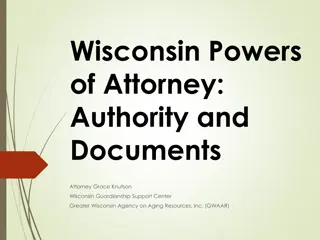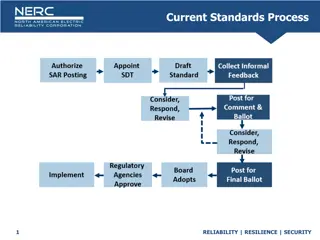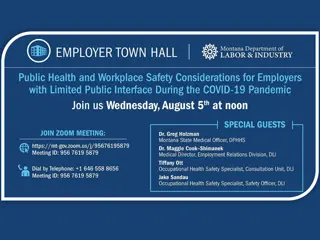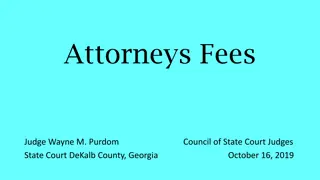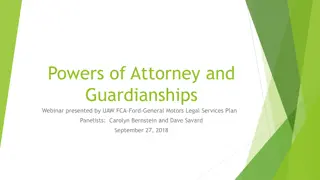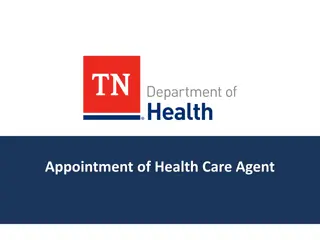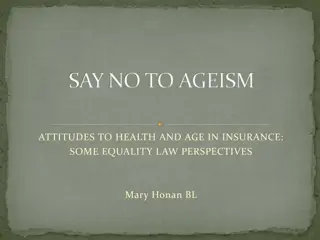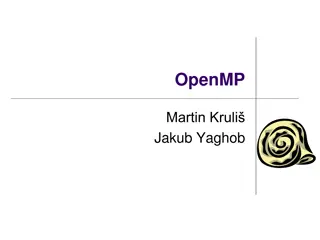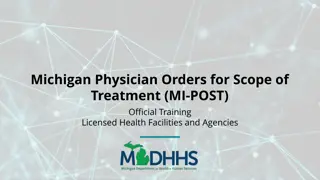Understanding Advanced Directives and Power of Attorney
Advanced directives and power of attorney are legal documents that allow individuals to plan for their medical care in case they become incapacitated. Advanced directives include instructions about life-sustaining treatments in terminal or irreversible conditions, while power of attorney delegates decision-making authority to an agent. These documents are important for ensuring your healthcare preferences are followed when you are unable to communicate them yourself.
- Advanced Directives
- Power of Attorney
- Medical Care Planning
- End-of-Life Decisions
- Healthcare Directives
Download Presentation

Please find below an Image/Link to download the presentation.
The content on the website is provided AS IS for your information and personal use only. It may not be sold, licensed, or shared on other websites without obtaining consent from the author. Download presentation by click this link. If you encounter any issues during the download, it is possible that the publisher has removed the file from their server.
E N D
Presentation Transcript
Advanced Directives & Power of Attorney
Advanced Directive An oral or written instruction under the Texas Advance Directives Act to administer, withhold or withdraw life- sustaining treatments in the event of a terminal or irreversible condition.
What is a Terminal Condition? An incurable condition caused by injury, disease or illness that according to reasonable medical judgment will produce death within 6 months, even with available life-sustaining treatment provided in accordance with the prevailing standard of medical care.
What is an Irreversible Condition? A condition, injury or illness that may be treated but is never cured or eliminated; that leaves a person unable to care for themselves or make decisions on their own behalf; and that, without life- sustaining treatment provided in accordance with the prevailing standard of medical care.
What is Life-Sustaining Treatment? Treatment that, based on reasonable medical judgment sustains the life of a patient and without which the patient will die. This includes both life-sustaining medications and artificial life support. This term does not include the administration of pain management medication, the performance of a medical procedure considered to be necessary to provide comfort care or any other medical care provided to alleviate a patient's pain.
Power of Attorney A document delegating to an agent the authority to make health care decisions on behalf of a principal executed or issued under the Advanced Directives Act.
Where are these Documents Located? On the nursing units in the resources boxes On the intranet under the Depts. tab and then the UOM link Ask a social worker for them **If you are at Midland Memorial Hospital please contact social services for these documents at ext. 5214.
Completing these Documents? Patients must be competent and able to make informed decisions in order to execute these documents. Two people must witness the signing of these documents. Witnesses cannot be providing direct patient care and cannot be the physician or an employee of the physician treating the patient. Witnesses cannot be the appointed agent, a relative of the patient, or a beneficiary of the patient s estate





